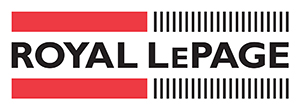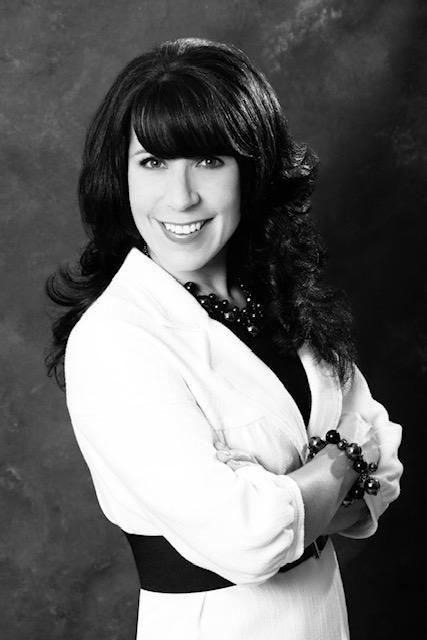
For Buyers
Choosing a neighbourhood
You’re not just buying a home - you’re buying a location. And even the most perfect house won’t feel right if you’re in the wrong neighbourhood. Educate yourself about the area so you’ll choose wisely - and end up being happy with your decision.
- Are you close to shopping and recreation? Being close to stores, parks, recreational facilities, a post office and dry cleaners will save you time.
- Do people in the area take care of their homes? Explore the neighbourhood, keeping an eye out for signs of neglect (overgrown lawns, houses in need of paint, trash and junked appliances littering yards). A run-down neighbourhood can drive down your property value.
- Are there schools nearby? If you have children, the proximity and quality of schools is key. Some schools will provide data (i.e. average test scores) that can determine quality. Talking to neighbours with children can be helpful, too.
- Is there good access to transportation? Living near public transport and/or major highways can mean an easier commute to work.
- Is it safe? Check with the local police department - they may be able to provide statistics about break-ins or other crimes.
- Will the home increase in value over time? Homes in some neighbourhoods appreciate faster than others. Research the selling prices of homes in over the past decade or so to predict future trends. Your agent may be able to provide helpful data.
- Is it quiet? Listen for traffic noise, barking dogs, airplanes and any other noises that might bother you. Return to the neighbourhood at different times of the day to get an accurate impression.
Options for empty nesters and retirees
The kids have grown and retirement is just around the corner. You’ve decided it’s time to move to a smaller home with lower costs and less maintenance.
Figure out what you need
You have a number of decisions to make before you start looking for your new home:
- Do you want to stay in the same neighbourhood? If not, remember that moving away means you may have to build a new network of acquaintances, find a new doctor, get to know a new area, etc.
- If you decide to move out of your neighbourhood, where would you like to go? A better neighbourhood within the city? A community outside a major center? Someplace closer to your kids? Somewhere warm?
- What type of property would suit your lifestyle? Is it a condo that needs no upkeep or a bungalow that would still allow you to garden?
Condos - less work, more rules
Short on maintenance and long on amenities, the condominium lifestyle is a favourite of empty nesters and retirees. Condominium apartments and townhomes are available in almost every neighbourhood and price range. Many offer pools, tennis courts and fitness areas - some even include golf courses. It’s an easy, hassle-free arrangement.
However, owning a condo means you’re governed by the rules and regulations established by the condominium board. Generally, these rules are necessary to ensure the enjoyment, safety and cleanliness of the building; when you’re doing your research, you may want to find out about the condo bylaws, especially if you have a pet.
Bungalows - small homes with big rewards
Bungalows offer the best of both worlds - a detached house and a yard, with less space to take care of. It’s a great way of preparing for the future, since living with fewer stairs makes it easier to get around should you slow down a little.
Retirement communities - a neighbourhood of friends
Adult lifestyle communities offer smaller homes, amenities often associated with condo living, and the opportunity to live with like-minded people. They tend to be resort-like in nature, and are built in rural areas that are close to large urban centres. Units range from apartments to detached homes. The focal point is the clubhouse, where you’ll likely find fitness facilities, tennis courts, games rooms and swimming pools. Some areas also feature golf courses.
If you’re not sure what option is best for you, please contact me. I’d be happy to talk to you about the possibilities that are available to you.
Protect yourself with a home inspection
That gorgeous house on the corner lot may look great, but it could be hiding all sorts of expensive, annoying problems, from a leaky roof to faulty wiring to a mouldy basement.
Make sure your home is solid and secure inside and out before you buy it. A home inspector will determine structural and mechanical soundness, identify problem areas, provide cost estimates for any work required, and generate a report. It’s a great way to avoid headaches and costly problems that can turn a dream home into a money pit.
If you decide to go ahead and buy a home with issues that have been flagged by your inspector, you can base your offer on how much potential repairs and upgrades may cost.
Home inspection costs range according to size, age and location of the home. Your Royal LePage sales representative can recommend a reputable home inspection service or arrange for an inspector to visit your property.
Determine what you can afford
Buying a home involves both one-time costs and more regular monthly expenses. It’s important that you take both into account when you’re figuring out how much you can spend on a home.
The largest one-time cost is the down payment, which usually represents upto 25% of the total price of the property. Then, in addition to the actual purchase price, there are a number of other expenses that you may be expected to pay for.
Typical One-Time Expenses
- Mortgage application and appraisal fee (paid at time of application)
- Appraisal fee (paid at inspection)
- Property inspection (optional) (paid at closing)
- Legal fees (paid at closing)
- Legal disbursements (paid at closing)
- Deed and/or mortgage registration (paid at closing)
- Property survey (sometimes provided by seller) (paid at closing)
- Land Transfer, Deed Tax or PropertyPurchase Tax (in Quebec within3 months following signing) (paid at closing)
- Mortgage interest adjustment andtake over fee (if applicable) (paid at closing)
- Adjustments for fuel, taxes, etc. (paid at closing)
- Mortgage insurance (and application fee if applicable) (paid at closing)
- Home and property insurance (paid at closing and on-going)
- Connection charges for utilities such as gas, water and electricity (paid on date of move)
- Moving expenses (paid on date of move)
Other costs may include landscaping, decorating, furnishings, appliances and repairs. Typical monthly costs include mortgage payments, maintenance, insurance, condo fees, property taxes and utilities.
Understanding market conditions
The real estate market is always changing, and it helps to understand how market conditions can affect your position as a buyer. Your agent can provide you with info on current conditions and explain their impact on you.
Buyers’ market
The supply of homes on the market exceeds demand.
Characteristics
- High inventory of homes
- Few buyers compared to availability
- Homes on the market longer
- Prices tend to drop
Implications
- More time to look for a home
- More negotiating leverage
Sellers’ market
The number of buyers wanting homes exceeds the supply of homes on the market.
Characteristics
- Smaller inventory of homes
- Many buyers
- Homes sell quickly
- Prices usually increase
Implications
- May have to pay more
- Must make decisions quickly
- Conditional offers may be rejected
Balanced market
The number of homes on the market is equal to the number of buyers.
Characteristics
- Sellers accept reasonable offers
- Homes sell within an acceptable time period
- Prices generally stable
Implications
- More relaxed atmosphere
- Reasonable number of homes to choose from

